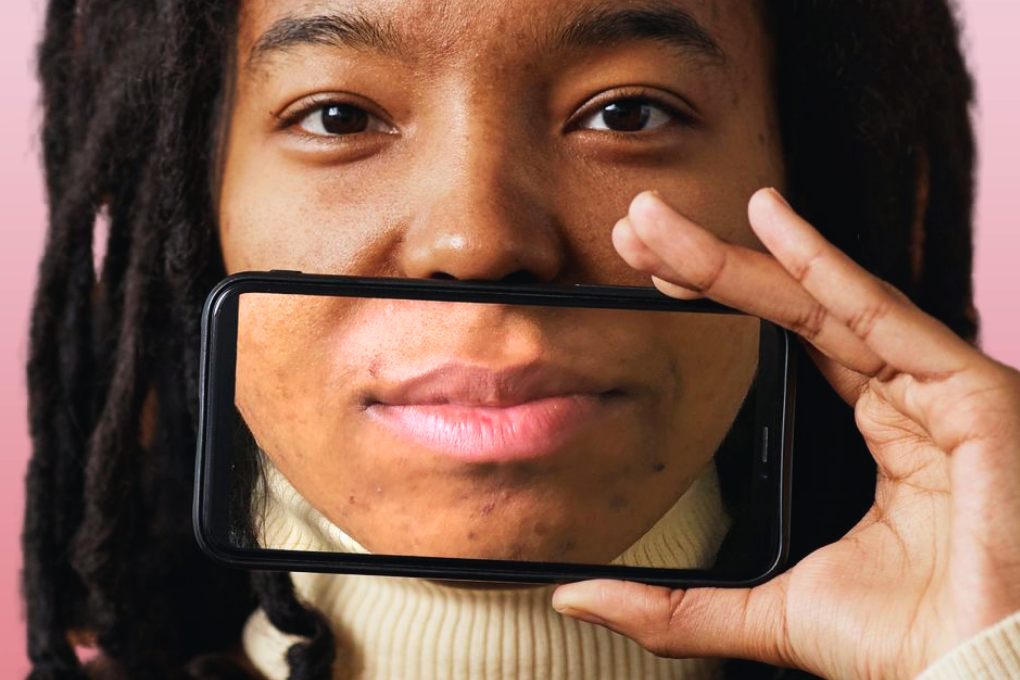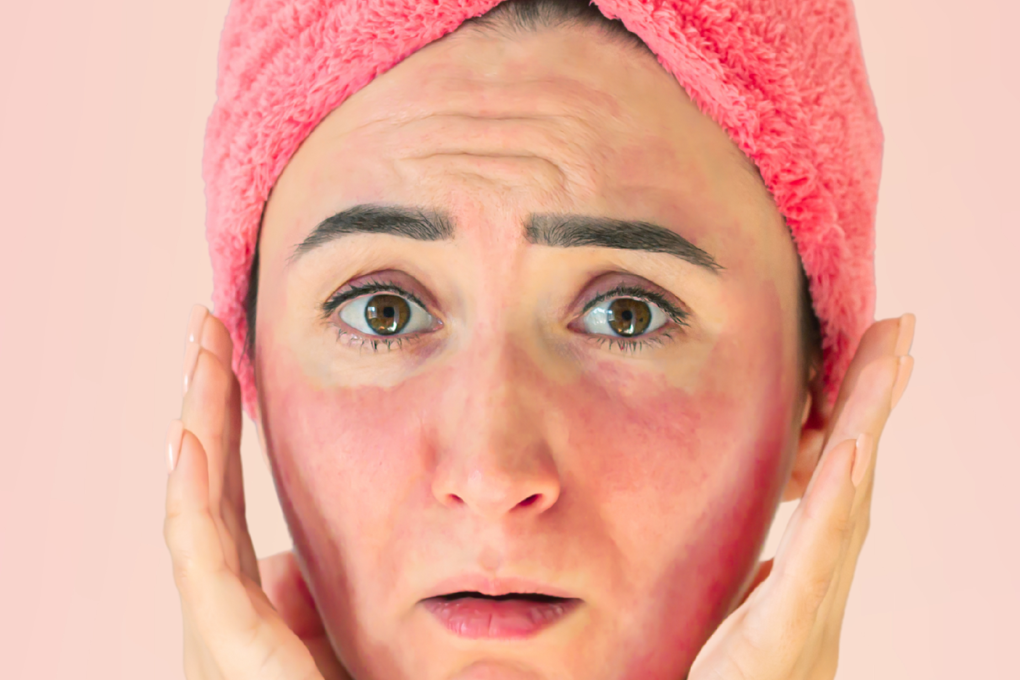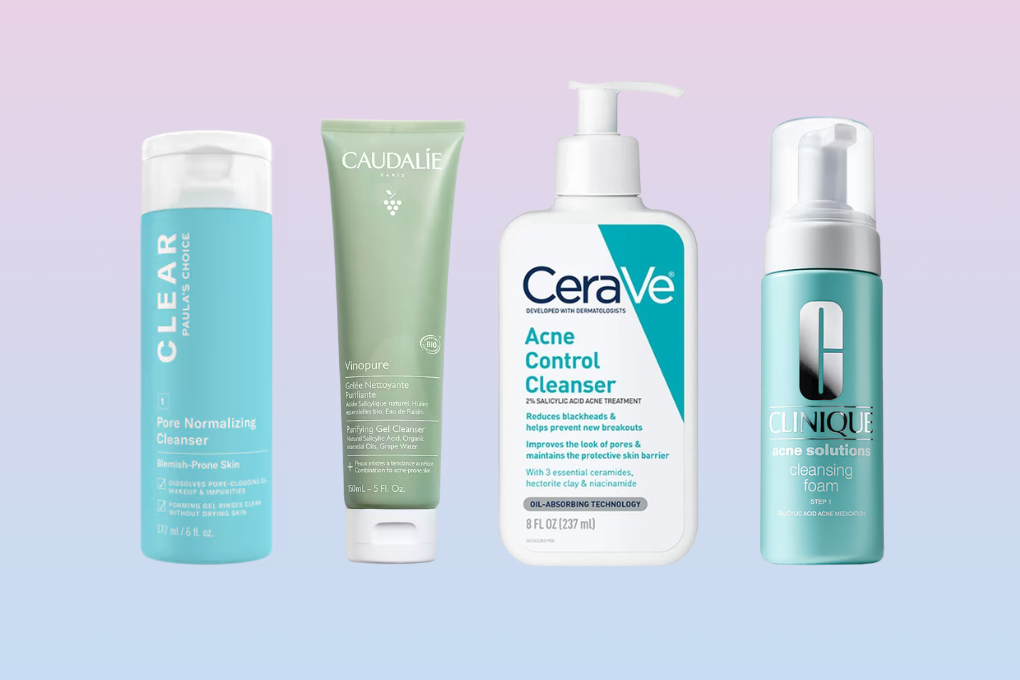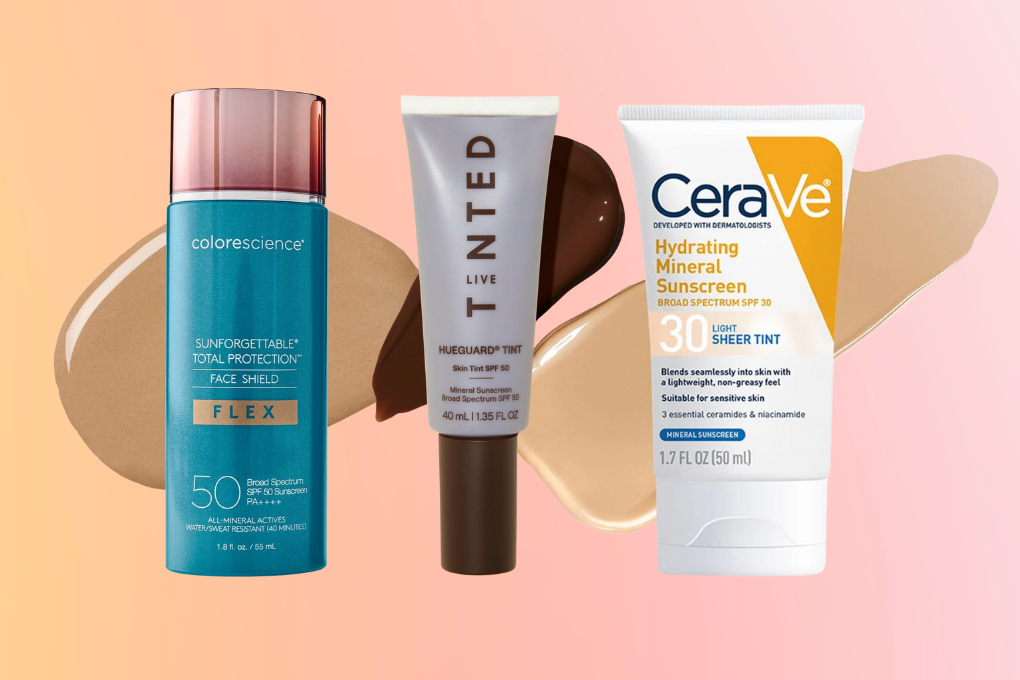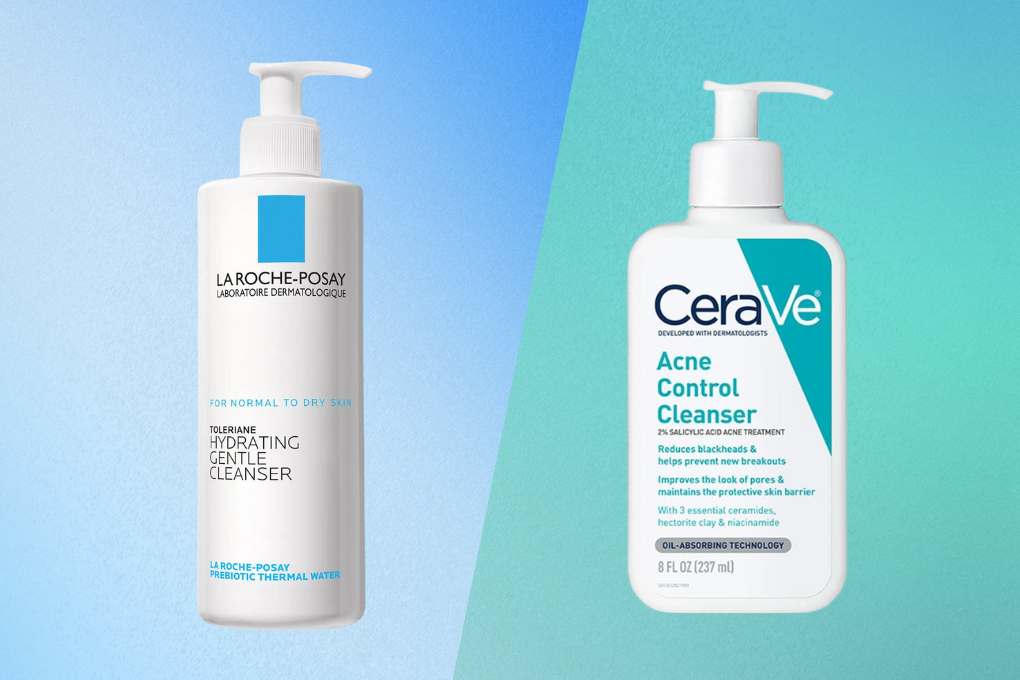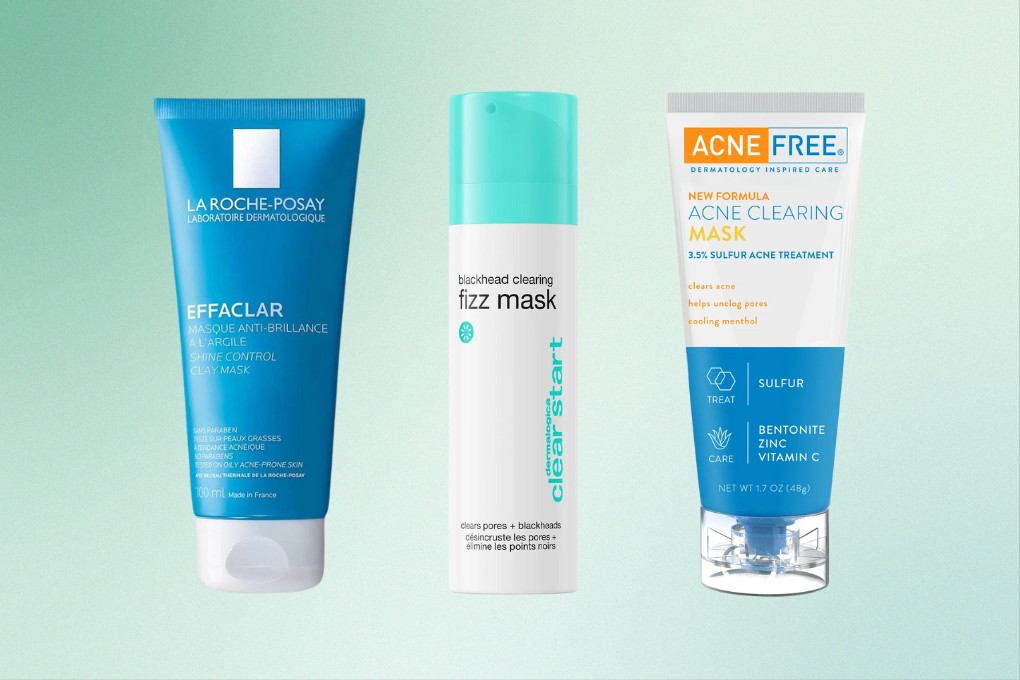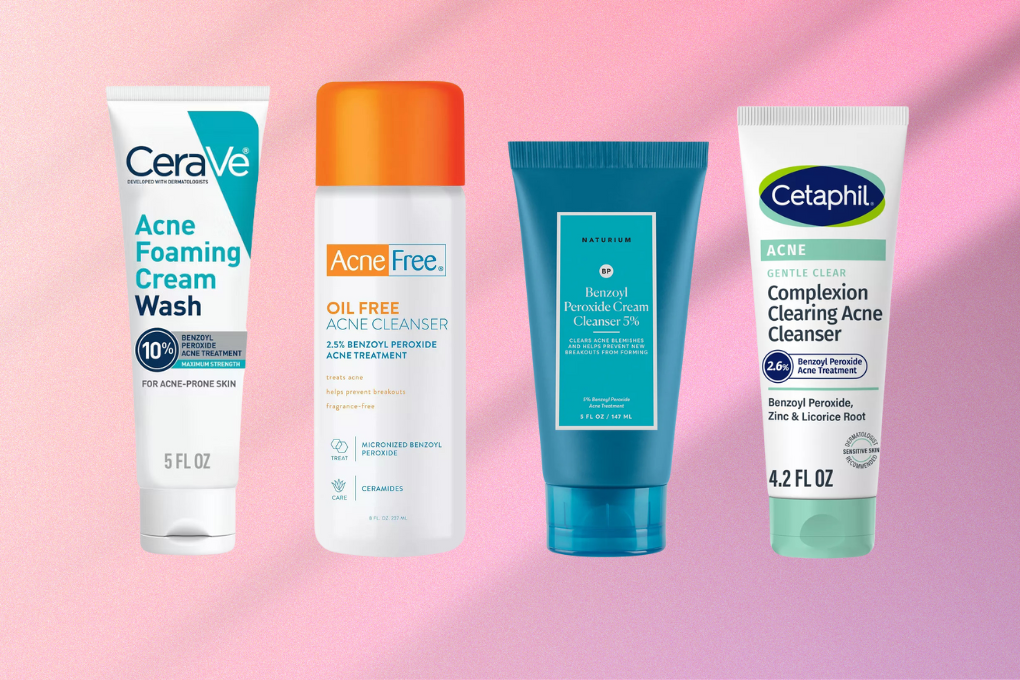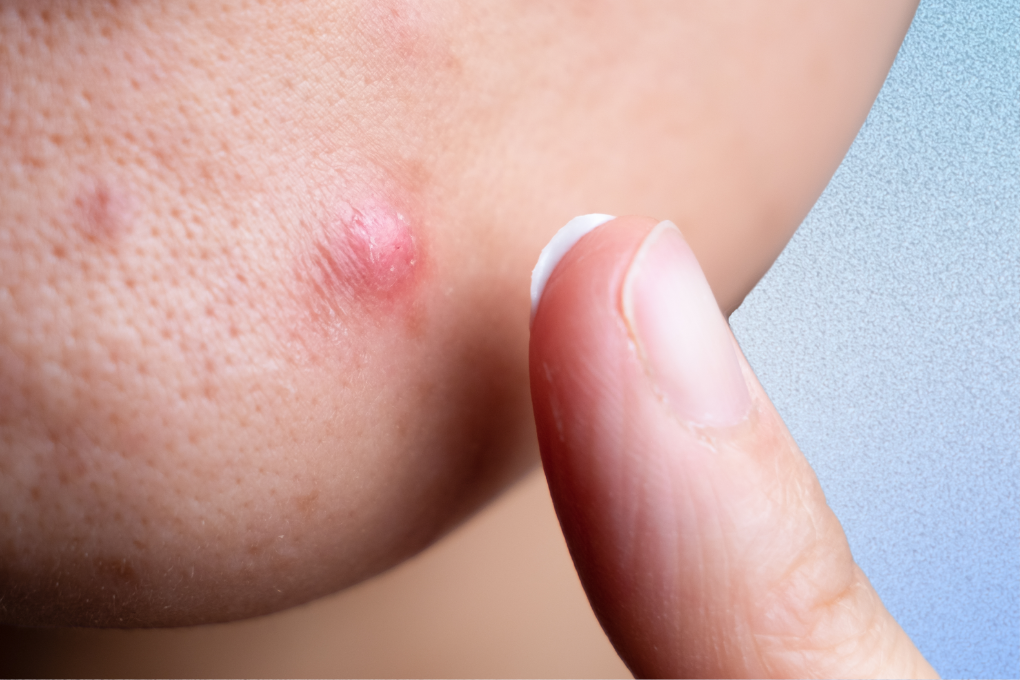When pimples start showing up around your mouth and chin, it can be disturbing to have them so front and center on your face where they can be difficult to hide. There are many reasons we get acne in this area, so once you understand the root cause for your particular case, it can be managed with lifestyle adjustments and professional guidance.
Why Do I Get Acne Around My Mouth?
Acne around the mouth and chin is very common, but has many different potential causes that can be difficult to including:
Perioral Dermatitis
The first cause of acne around your mouth and chin is, as it happens, not even acne.
Perioral dermatitis is a type of skin rash that typically appears around our mouth, the folds of our nose, and our chin. It is more common in women and is characterized by small red bumps, pustules, and scaling or flaking skin that can sometimes have a similar appearance to acne. Perioral dermatitis can be caused by:
- Topical steroid creams
- Cosmetic products, including moisturizers, makeup, and sunscreen
- A compromised skin barrier
- Hormonal changes
- Certain toothpastes, due to sodium lauryl sulfate and fluoride can irritate the skin
It’s important to consult a dermatologist if you suspect you have perioral dermatitis, as it can be easily confused with other skin conditions and may require a specialized treatment plan. To help treat a perioral dermatitis flare-up, you will need to avoid the use of irritants by paring back your skin care routine to the absolute minimum with only gentle, lightweight, and fragrance-free products, particularly around your mouth. Perioral dermatitis is not contagious and does not usually cause long-term scarring or damage to the skin, but it can be a persistent and uncomfortable condition if left untreated.
Skincare Products
Skincare products and makeup can play a role in the development of acne around the mouth. Some ingredients in cosmetic products, such as oils and butters, fatty alcohols, and silicones, can clog pores for some of us and contribute to the formation of acne.
When in doubt, check the ingredient list for comedogenic ingredients with online tools like CosDNA and INCIDecoder. In addition, certain makeup products, such as long-wearing lipsticks or heavy foundation, can create a barrier on the skin that traps sweat, bacteria, and oil, potentially leading to breakouts. Lip balms can contain ingredients such as waxes and oils that are fine on the lips, but if they migrate to the skin around your mouth they can cause pimples.
If you’re dealing with acne around the mouth, it’s important to take a close look at your products and consider switching your skincare and makeup to non-comedogenic or oil-free formulas with ingredients that won’t clog your pores. Remember to always remove your makeup before bed and cleanse your skin thoroughly to help prevent clogged pores and breakouts.
Hormones
Acne on the lower half of the face, particularly cystic acne on the chin and jawline, can often point to hormonal causes. Hormonal fluctuations can lead to an increase in sebum production, which can clog pores and lead to acne.
Fluctuations in hormone levels, such as those that occur during puberty, menstruation, pregnancy, and menopause, can trigger the production of excess oil and sebum in the skin, leading to clogged pores and acne. Androgens, a type of hormone that includes testosterone, are particularly implicated in acne development, as they stimulate the sebaceous glands and can lead to increased oil production. Women with polycystic ovary syndrome (PCOS) may be particularly prone to acne around the mouth due to elevated androgen levels.
Hormonal acne may be treated with a variety of therapies, including oral contraceptives, anti-androgen medications, and topical retinoids. If you suspect that your acne is related to a hormonal imbalance, speak with a healthcare provider or dermatologist for personalized treatment recommendations.
Food
When we eat oily or greasy foods, some of that oil can end up on our skin, particularly around our mouths. This can also happen when we eat with our hands and then touch our face or mouth.
If we don’t cleanse our skin thoroughly after eating, oils from our food can linger on our skin and lead to clogged pores and acne. To help prevent acne around the mouth caused by oil or other ingredients in food, it’s important to keep the skin around your mouth clean and avoid touching your face with your hands. While this is easier said than done when you’re out at a restaurant, when you are eating at home consider using a gentle facial cleanser to remove excess oil and bacteria from your skin after eating.
Oral Hygiene
It can be so tempting to skip brushing our teeth when we are tired, but when oral hygiene isn’t kept up, bacteria can accumulate in the mouth and on our teeth, gums, and tongue. These bacteria can then spread to the skin around your mouth and contribute to the development of acne.
It is important to maintain good oral hygiene practices such as brushing twice a day, flossing daily, using mouthwash, and seeing a dentist regularly to help prevent the buildup of bacteria and reduce the risk of getting acne around the mouth.
You should also pay attention to how your skin reacts to certain toothpastes, as some contain ingredients such as sodium lauryl sulfate, which can be irritating to certain skin types. Additionally, some mouthwashes contain alcohol, which can cause skin irritation and dryness when it regularly comes in contact with the skin. The irritation and inflammation from these products can exacerbate acne.
Oral hygiene products can leave residue on the skin, which can clog pores and contribute to the development of acne. Flossing can also spread bacteria to the skin around your mouth that may cause acne if it is not cleansed. An easy way to remedy this is to make sure that your morning and evening routines are set up so you wash your face thoroughly after brushing your teeth.
Lifestyle Changes
Finally, take a step back and look at your daily habits to see if something might be triggering acne around your mouth. Do you touch around your mouth when you are nervous or working? Do you use heavy products in your hair that may brush against your face? Do you change your towels and pillowcases often enough if you have acne-prone skin?
Even if most people’s skin might be fine with certain habits, there’s always a chance that your skin will react differently and have unique demands. Try to make small changes to keep unwanted substances off of your face such as finding other ways to occupy your hands to keep them away from your face, washing your face after rinsing conditioner out of your hair, and using a separate clean towel or even a paper towel to dry your face, instead of the one that you use on your hair.
Prioritize a simple skin care routine of a gentle cleanser, non-comedogenic moisturizer, and a sunscreen that works for your skin during the day, that you can follow even when you are busy. Pay attention to your skin and add new products one at a time to be sure they aren’t causing acne.
If you are experiencing acne around the mouth and chin, it is important to identify the underlying cause in order to develop an effective treatment plan. The importance of speaking to a dermatologist cannot be overemphasized. A dermatologist can help to determine the cause of your acne and recommend appropriate treatments, such as topical or oral medications, lifestyle changes, or other interventions. With the right information and care, you can minimize the occurrence of acne around the mouth and chin and feel more comfortable
Acne around the mouth can be a frustrating problem to deal with, but with the right approach, it is possible to manage and prevent it.





